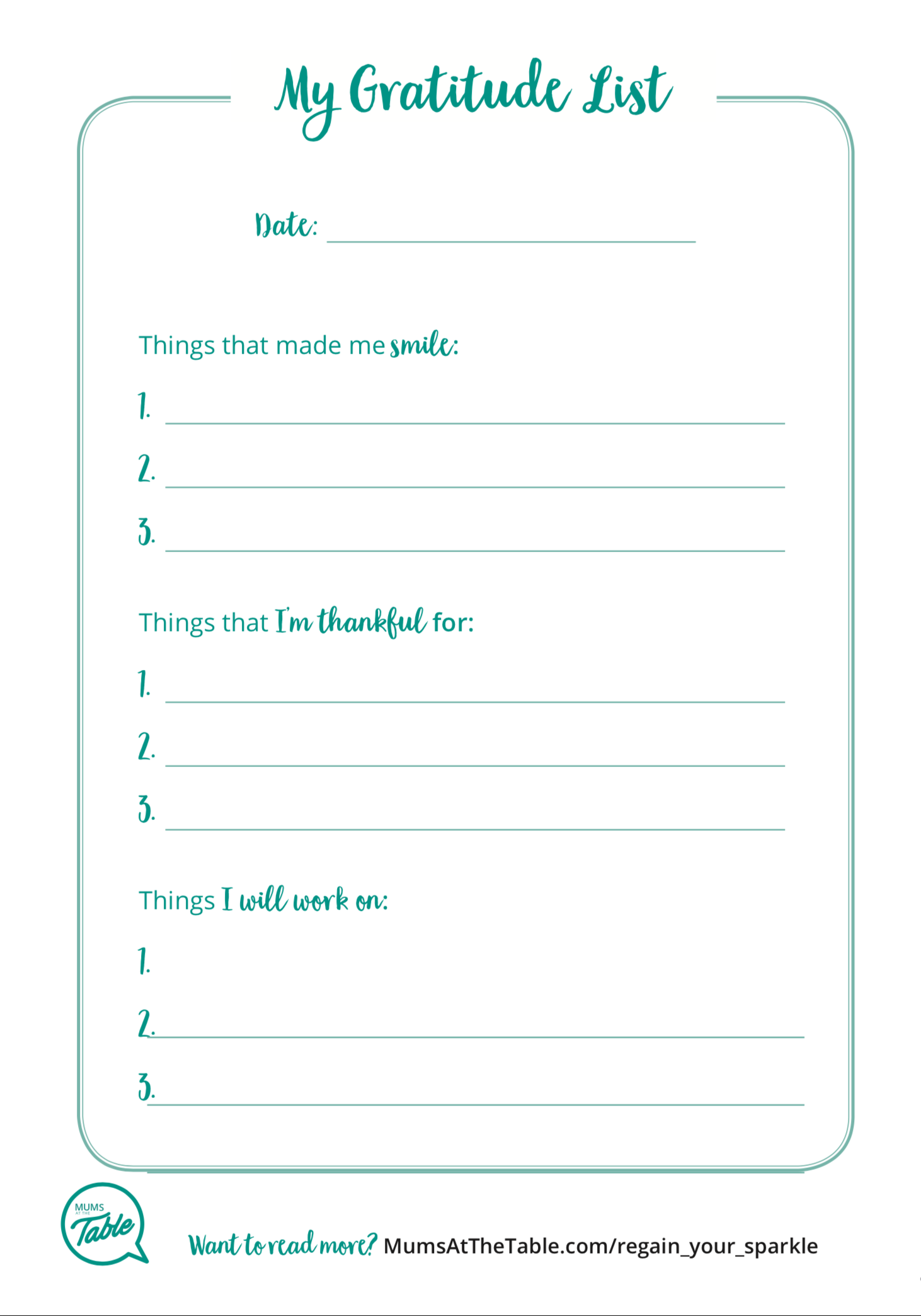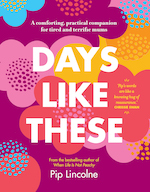Do one of these if you occasionally drop the ball on parenting. Actually, especially if you drop the ball.
You shifted into a whole new way of human-ing when you became a mum. Sometimes in survival mode, often putting yourself last, regularly shuffling your want-to-dos aside for the must-dos family life throws up, perhaps getting your heart broken some of the time, almost always becoming the “default” person at your place . . . the one who does all the things.
It’s an awful lot and you’re doing it all with NO INSTRUCTION MANUAL!
With all that noted, it’s vital to talk about how absolutely terrific you are. Not only were you able to birth a human (sometimes more than one), but you are kind of managing to grow and look after it, while you grow and look after yourself. I say “kind of” because chances are some things are slipping through the cracks. If you are the sort of mum I am, you haven’t got it all together and your days routinely seesaw between what you need to do and what your child needs from you.
If there was a Cirque du Soleil of mum life, I would be the one attempting to look snazzy in a leotard as I drop several sparkly balls and try not to think about my wedgie. Perhaps this is you, too. I’m guessing that you, like me, are constantly keeping your eye on all the urgent things in front of you and forgetting about all the brilliant things you have achieved prior to this moment.
You are doing this parenting thing with pretty much zero hands-on training. As you learn on your feet, the ground shifts under you, and you are often doing it with an audience, and someone small (or large) is quite frequently yelling at you. You, my friend, are a blinking HERO.

Another hero, a political journalist by the name of Gaby Hinsliff, sparked a conversation about the experience of motherhood when she wrote a piece for the Observer a few years ago, “I had it all, but I didn’t have a life”. Gaby wrote about her work/kid balance struggle—a struggle she was fortunate enough to be able to step away from (she gave up working when her son was small). She described the contrasts of parenting with its paradoxes and irrationality.
Some people scoffed and said she should shut up, get on with it and stop complaining. (Those people were clearly idiots.) But one reader responded compellingly, noting that Gaby, herself, you, me, every mum you know had not been prepared for this big shift—that we are all scrambling to keep up and that it doesn’t really ever end (but that’s okay, I promise).
“From the seventies to the present day, girls and young women have been kept increasingly in the dark about this Great Irrationality,” commented this reader. “No-one hints to them that the moment the first child arrives the entire centre of gravity of the mother’s life changes forever. A mother can no longer see the world in the same way as she did because the lens of the child, even an adult child, is always there.”
NO-ONE tells you. Not really, truly in a way that we can understand anyway. As John Lennon sang, “Nobody told me there’d be days like these.” Perhaps it’s not even possible to tell us. Perhaps it’s all just too big.
This is why it’s important to give yourself props for all that you do in your efforts to adapt to this huge life change.
This is why it’s vital to notice the good bits and the progress you have made.
Stop the juggly forward momentum occasionally. Turn and look over your shoulder as you work hard to adjust to the trickery that is constantly coming your way. Do this even if you occasionally drop the ball. Actually, especially if you drop the ball. And keep doing it right through your parenting years (ie. for the rest of your life!).
When you look back and focus carefully, you will see that you are doing a pretty brilliant job of something that you have had very little schooling in. So know that.
There are lots of more formal ways of taking stock of your best mum—and woman—moments, past and present. A snazzy leotard is not even required for many of the following exercises (but you can wear one if you like!). Here are two to choose from or you can try them all.
1. Mum moments/Me moments
Start collecting “Mum moments” and “Me moments”. Make note of the gains you are making by keeping a diary to track personal and parenting progress, even if you jot down just a few messily scribbled words. For example:
Mum moment: Said YES to my child when so very often I say NO without thinking.
Me moment: Sat in the sun at lunchtime and felt so much better for it.
Journalling can help you focus on and process thoughts and feelings, spot behavioural patterns, solve problems and set goals. This sort of Mum/Me journalling can also help you to appreciate when you are achieving and even surpassing those goals, because often we’re on to the next challenge without congratulating ourselves on getting through the last one.
Flip back through the pages regularly to notice how much you’re actually doing well and to refocus yourself on the moments that matter to you.
According to the experts, journalling has a whole bunch of physical and mental health benefits if you use it to help organise and process your thoughts.
“Scientific studies have shown it to be essentially a panacea for modern life,” Hayley Phelan wrote in her 2018 article, “What’s All This About Journaling?” in The New York Times. “There are the obvious benefits, like a boost in mindfulness, memory and communication skills. But studies have also found that writing in a journal can lead to better sleep, a stronger immune system, more self-confidence and a higher IQ.”
Reflecting on life as both a woman and a mum, even via a few short phrases each day, is a super-simple way to love yourself a little bit more. In fact, journalling these positive experiences can prompt your brain to “relive” them and give you a helpful second dose of feel-good hormones.
If you find yourself loving the whole journalling thing (perhaps you are already an avid journaller), you could try a longer form of this excellent habit—author Julia Cameron’s “Morning Pages”. Julia, author of The Artist’s Way, recommends busting out “three pages of longhand, stream of consciousness writing” when you first wake up. She stresses that these pages are not supposed to be art, or even writing.
Morning Pages are an excellent way of getting whatever is swirling around in your head onto the page in one giant daily brain dump, freeing you up to think about other things and giving you some perspective on thoughts that might have been playing on your mind/torturing you. I highly recommend trying this, if you have time for it . . . even one page is worth doing, if that is all you can manage. You will feel better, stronger and less crappy for it!
2. Three good things
Sometimes called the “What went well” exercise, this simple but genius habit can help you to notice the good job you are doing, even when your days seem to be a total shambles. Basically, you write down three good things you experienced each day, on a daily basis. For example:
- Kiddo ate TWO-THIRDS of their dinner.
- Read a chapter of my new book on the bus.
- Snuck out to the shops by myself.
Clearly yours will be different to the list above. Or not. They are all good things.
This activity cleverly worms its way into your thought processes and, before you know it, you’re operating from a much more positive and curious default. You begin to realise what matters to you most, and gravitate towards making more time for those things.
When you’re a parent, it can be extremely helpful to include the everyday meaningful moments you experienced with your child, however fleeting or tiny they might have been. Before you know it, you have a whole list of mum achievements and ace times you’ve spent together—quite the handy bucket list if you’re stuck for something special to do together.
The benefits of this activity are long lasting. A 2005 study by psychologist Martin Seligman and colleagues, published in American Psychologist, found that writing about three good things was associated with an increase in happiness immediately after documenting the three things, as well as one week, one month, three months and six months later.
Text from Days Like These by Pip Lincolne. Murdoch Books RRP $32.99.
FREE PRINTABLE!
Print a few copies and fill one out each day (or week) to remind you to find things to be grateful for in your day.

How helpful was this article?
Click on a star to rate it!
0 / 5. 0
Be the first to rate this post!
Pip Lincolne
Related posts
Subscribe
Receive personalised articles from experts and wellness inspiration weekly!



